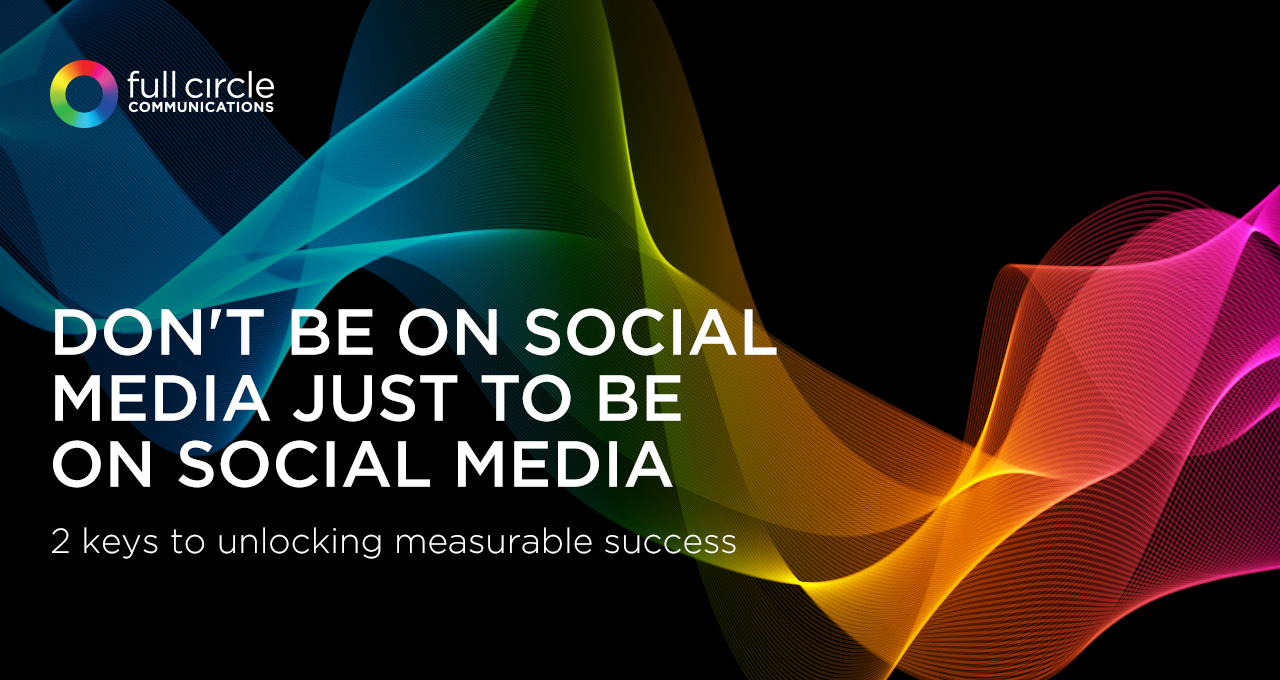Don’t be on social media just to be on social media
"Don’t be on social media just to be on social media"
That was the main thread of the conversation that took place during last month’s panel discussion during the MGAA conference and it put me in an analytical mindset. I have been working with social media in the financial services sector for a decade now and I would say that the majority of brands are yet to use social media in a fully strategic way.
Put your hand up if any of the following apply to your business:
We are not sure whether social media is a corporate communications, marketing, business development, HR or customer services tool
We do not have a dedicated social media manager in our business
Social media is managed by a young person in our office because they “get it”
The senior leaders within the business have no involvement with social media
We started on Twitter because our competitors were on there
We have a Facebook page but have no idea who set it up or how to access it and no content has been posted to it for over three years
These are just some of the issues we often hear when we start working with a new client, but there is no judgement from us! We know first-hand just how complex social media can be, especially for a regulated business. There is no one-page instruction booklet that will tell you exactly how to succeed with it. It can be a huge resources drain and offer no clear returns for your efforts. But, before you delete your Twitter account and shut down your LinkedIn page, read on.
Collaboration and strategy is the key to social media success
I may have painted a pretty bleak picture, but it’s only because I know that it is possible to gain tangible value from your social media activity. If you found that you were agreeing with some or all of the list above then just know that there are solutions.
These solutions come when approaching your use of social media differently. This different approach is centred in strategic thinking, not in the execution. By taking a step back to consider why your business is using social media, who your target audiences are, what content they will most likely engage with and what success looks like, you might find that actually you don’t know the answers. If you don’t know the answers then you have a huge opportunity to see greater value from your efforts by spending the time to find out the answers. To do it right, you will need to pull in opinions and ideas from all aspects of your business. You will also need to look externally at how your competitors are using it, which of your target audiences are using it and what content they are engaging with, what topics that are relevant to your business and your target audience are actually being discussed. It is only through understanding these areas and collaborating with the different teams that you can start to build a strategy and a plan that will not only dictate how you use social media, but how you measure the value you are able to gain from it.
We have worked with businesses that have used it as a business development tool. One client, in fact, started a conversation with a broker off the back of a single Tweet which concluded with the broker moving their £30m book of business to them. We have other clients that focus on it as a corporate communications tool, building their brand awareness and launching new products and initiatives via Twitter and LinkedIn. We have other clients that regularly pick up questions, complaints and glowing reviews across their social media channels, some of which manage to turn a disgruntled customer around by having the processes in place to take prompt action. Some clients have hired new employees after they were attracted by the CSR activity that was shared across their social channels. What all of these success stories have in common is that, in each example, there was a clear strategy around the role social media was to play for those organisations. There were defined roles and responsibilities for those involved with generating content, monitoring feeds and analysing the activity as well as clear processes for what to do in certain situations.
So, if your business is using social media just because you think you should, it might be worth us having a chat. We have developed a framework as part of our PR+ service that ensures you have a defined strategy that informs the activity across all of the channels that are available from a corporate communications and marketing perspective. That strategy should make sure that your resources are used in the best way and that you are able to demonstrate real value from your efforts.
Interested in learning more about our approach and how we can help your business? Get in touch at cfreeman@fullcirclecomms.co.uk to find out more.
Watch Craig's interview with the MGAA on the value of social media below.

